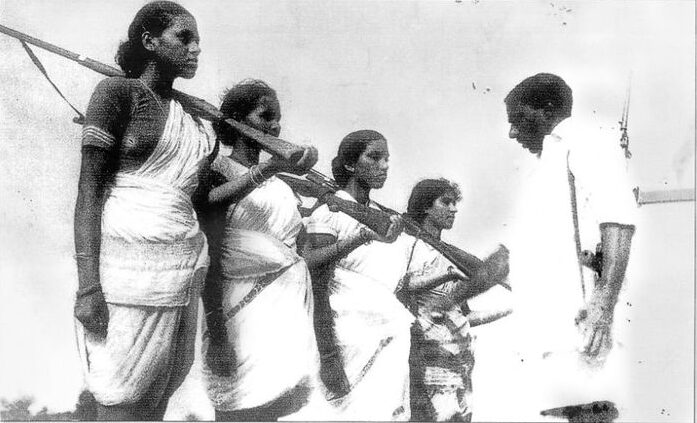The epic poem Asia Jaag Utha, written in 1950 by Ali Sardar Jafri of the Indian Progressive Writers Association, was a battle hymn of its time, a celebration of Asia’s history and geography, with a vision for Asian liberation and communist revolution at the dawn of the Cold War in the aspirational Third World. Are its messages still applicable today, or is it strictly a period piece? This essay analyzes what Jafri was trying to do in his own context and explores whether it has anything to say to ours. In order to do this, the author enters into dialogue with Jafri’s poetry, and proposes some updates to its political agenda that might be needed to carry its energy into the present. While the mid-twentieth century vehicles of progress and liberation (such as industrial development and the postcolonial nation-state) require critique, Jafri’s emancipatory impulses and ideals of solidarity ring true.
Articles by Maia Ramnath
Maia Ramnath is an independent scholar, artist and activist in New York City, whose education includes a BFA in Dance (Butler University), MA in Interdisciplinary Humanities and Social Thought (New York University), and PhD in History (University of California-Santa Cruz). Ramnath is the author of the books Art for Life: Conversations with the South Asian Progressive Writers Movement on Pens, Swords, and Internationalism, from Anti-fascism to Afro-Asian Solidarity (Barnes & Noble Press, 2020); Decolonizing Anarchism: An Anti-Authoritarian History of Indian Liberation Struggle (AK Press, 2012); and The Haj to Utopia: How the Ghadar Movement Charted Global Radicalism and Attempted to Overthrow the British Empire (University of California Press, 2011); and has contributed to over a dozen collections related to anarchism, anticolonialism, and/or radical social movements, most recently “Hindutva: The Other Aryan Supremacy: Fighting Hindu Fascism in the South Asian Diaspora” in No Pasaran: Antifascist Dispatches from a World in Crisis, ed. Shane Burley (AK Press, 2022); and “Lotus Roots: Transposing a Political-Aesthetic Agenda from South Asia to Afro-Asia” in Forms of the Left in South Asia: Aesthetics, Networks and Connected Histories, ed. Lotte Hoek & Sanjukta Sunderasan (Bloomsbury Press, 2022).
